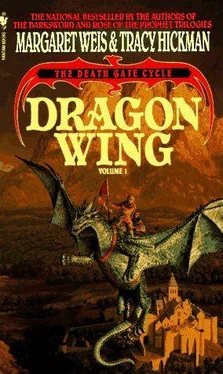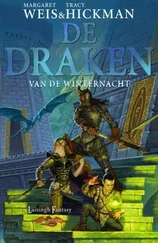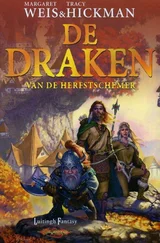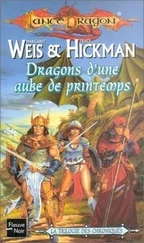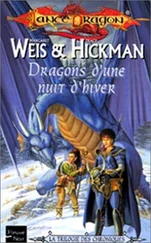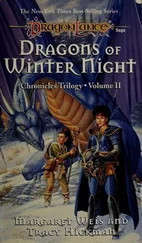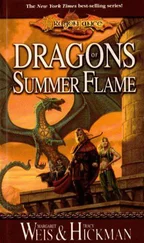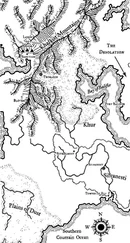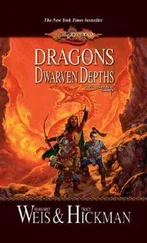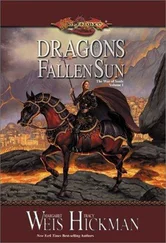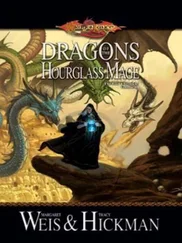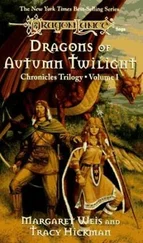Margaret Weis - Dragon Wing
Здесь есть возможность читать онлайн «Margaret Weis - Dragon Wing» весь текст электронной книги совершенно бесплатно (целиком полную версию без сокращений). В некоторых случаях можно слушать аудио, скачать через торрент в формате fb2 и присутствует краткое содержание. Жанр: Фэнтези, на английском языке. Описание произведения, (предисловие) а так же отзывы посетителей доступны на портале библиотеки ЛибКат.
- Название:Dragon Wing
- Автор:
- Жанр:
- Год:неизвестен
- ISBN:нет данных
- Рейтинг книги:3 / 5. Голосов: 1
-
Избранное:Добавить в избранное
- Отзывы:
-
Ваша оценка:
- 60
- 1
- 2
- 3
- 4
- 5
Dragon Wing: краткое содержание, описание и аннотация
Предлагаем к чтению аннотацию, описание, краткое содержание или предисловие (зависит от того, что написал сам автор книги «Dragon Wing»). Если вы не нашли необходимую информацию о книге — напишите в комментариях, мы постараемся отыскать её.
Dragon Wing — читать онлайн бесплатно полную книгу (весь текст) целиком
Ниже представлен текст книги, разбитый по страницам. Система сохранения места последней прочитанной страницы, позволяет с удобством читать онлайн бесплатно книгу «Dragon Wing», без необходимости каждый раз заново искать на чём Вы остановились. Поставьте закладку, и сможете в любой момент перейти на страницу, на которой закончили чтение.
Интервал:
Закладка:
“A promise. And now,” said the Hand coolly, “we’d best get going. We’ll need to do our traveling by night.”
“The dragon will take you to where your ship is moored—”
“—and then return and tell you the location?” Hugh raised an eyebrow. “No.”
“You have our word—”
Hugh smiled. “The word of a man who hires me to murder his child.” The young wizard flushed in anger. “Do not judge him! You cannot understand—” Biting his tongue, he silenced himself.
“Understand what?” Hugh flashed him a sharp, narrow-eyed glance.
“Nothing. You said yourself you have no interest in politics.” Trian swallowed. “Believe what you want of us. It makes little difference.” Hugh eyed him speculatively, decided that no more information would be forthcoming. “Tell me where we are and I will find my way from here.”
“Impossible. This fortress is secret! We worked many years to make it a safe retreat for His Majesty.”
“Ah, but you have my word,” Hugh mocked. “It seems we’re at an impasse.” Trian flushed again, his teeth clenched over his lip so tightly that, when at last he spoke, Hugh could see white marks upon the flesh.
“What of this? You provide me with a general location—say the name of an isle. I’ll instruct the dragon to take you and the prince to a town on that isle and leave you. That’s the best I can do.”
Hugh considered this, then nodded in agreement. Knocking the ashes from the pipe, he tucked the long, curved stem with its small rounded bowl into the pack and inspected the remainder of the pack’s contents. He evidently approved what he saw, for he cinched it tightly.
“The prince carries his own food and clothing, enough for”—Trian faltered, but forced the words out—“for a ... a month.”
“It shouldn’t take that long,” said the Hand easily, throwing the fur cloak over his shoulders. “Depending on how close this town is to where we’re bound. I can hire dragons—”
“The prince must not be seen! There are few who know him, outside of the court, but if by chance he were recognized—”
“Relax. I know what I’m doing,” Hugh said softly, but there was a warning in the black eyes that the wizard thought best to heed.
Hugh hefted the pack and started for the door. Movement glimpsed from the corner of an eye drew his attention. Outside, in the courtyard, he saw the king’s executioner bow in apparent response to some unheard command and then quit his post. The block alone remained standing in the courtyard. It gleamed with a white light strangely inviting in its coldness and purity and promise of escape. The Hand paused. It was as if he felt, for a brief instant, the invisible filament, cast out by Fate, wrap itself around his neck. It was tugging him away, dragging him on, entangling him in the same vast web in which Trian and the king were already struggling.
One swift, clean stroke of the sword would free him. One stroke against ten thousand barls. Twisting the braid of his beard, Hugh turned to face Trian.
“What token shall I send to you?”
“Token?” Trian blinked, not understanding.
“To indicate the job is done. An ear? A finger? What?”
“Blessed ancestors forfend!” The young wizard was deathly white. He swayed unsteadily on his feet and was forced to lean against a wall to retain his balance. And so he did not see Hugh’s lips tighten in a grim smile, the assassin’s head incline ever so slightly, as if he’d just received an answer to a very important question.
“Please . . . forgive this weakness,” Trian muttered, brushing a shaking hand across his damp skin. “I haven’t slept in several nights and . . . and then the dragon ride up rydai and back again in such haste. Naturally, we want a token.
“The prince wears”—Trian gulped and then, suddenly, seemed to find some inner reserve of strength—“the prince wears an amulet, the feather of a hawk. It was given him when he was a babe by a mysteriarch from the High Realm. Due to its magical properties, the amulet cannot be removed unless the prince is”—here Trian faltered once again—“dead.” He drew a deep, shivering breath. “Send us this amulet, and we will know . . .” His voice trailed off.
“What magic?” Hugh asked suspiciously.
But the wizard, pale as death, was silent as death. He shook his head, whether physically unable to speak or refusing to answer, Hugh couldn’t tell. At any rate, it was obvious he wasn’t going to find out any more about the prince or his amulet.
It probably didn’t matter. Such magically blessed objects were commonly given to babes to protect them from disease or rat bites or keep them from tumbling headfirst into the firepit. Most of the charms, sold by roaming charlatans, had as much magical power in them as did the stone beneath Hugh’s feet. A king’s son, of course, was likely to have a real one, but Hugh knew of none—even those with true power—who could protect a person from, say, having his throat cut. Long ago, so legend told, there had been wizards who possessed such skill in their art, but not now. Not for many years, since they had left the Mid Realm and gone to dwell on the isles that floated high above. And one of these wizards had come down and given the kid a feather?
This Trian must take me for a real fool. “Pull yourself together, wizard,” said Hugh harshly, “or the kid will suspect.”
Trian nodded and gratefully drank the mug of water the assassin poured for him. Closing his eyes, the wizard drew several deep breaths, centered himself, and within a few moments managed to smile calmly and normally. Color returned to his ashen cheeks.
“I am ready now,” Trian said, and led the way down the corridor to the chamber where the prince lay sleeping.
Inserting the key in the lock, the wizard silently opened the door and stepped back.
“Farewell,” Trian said, tucking the key into the breast of his doublet.
“Aren’t you coming? To introduce me? Explain what’s going on?” Trian shook his head. “No,” he said softly. He was, Hugh noted, careful to keep his gaze straight ahead, not so much as glancing into the room. “It is now in your hands. I’ll leave you the lamp.”
Turning on his heel, the wizard practically fled down the corridor. He was soon lost in the shadows. Hugh’s sharp ears caught the sound of a lock click. There was a rush of fresh air, swiftly shut off. The wizard was gone. Shrugging, fingering the two coins in his pocket with one hand, the other reassuringly touching the hilt of his sword, the assassin entered the chamber. Holding the lamp high, he shone it on the child.
The Hand cared nothing for and knew less about children. He had no memory of his own childhood—little wonder, it had been brief. The Kir monks had no use for the state of blissful, carefree childish innocence. Early on, each child was exposed to the harsh realities of living. In a world in which there were no gods, the Kir worshiped life’s only certainty—death. Life came to mankind haphazardly, at random. There was no choice, no help for it. Joy taken in such a dubious gift was seen to be a sin. Death was the bright promise, the happy release.
As part and parcel of their belief, the Kir performed those tasks which most other humans found offensive or dangerous. The Kir were known as the Brothers of Death.
They had no mercy for the living. Their province was the dead. They did not practice healing arts, but when the corpses of plague victims were tossed out into the street, it was the Kir who took them, performed the solemn rites, and burned them. Paupers who were turned from the doors of the Kir when they were alive gained entrance after death. Suicides—cursed by the ancestors, a disgrace to their families—were welcomed by the Kir, their bodies treated with reverence. The bodies of murderers, prostitutes, thieves—all were taken in by the Kir. After a battle, it was the Kir who tended to those who had sacrificed their lives for whatever cause was currently in vogue.
Читать дальшеИнтервал:
Закладка:
Похожие книги на «Dragon Wing»
Представляем Вашему вниманию похожие книги на «Dragon Wing» списком для выбора. Мы отобрали схожую по названию и смыслу литературу в надежде предоставить читателям больше вариантов отыскать новые, интересные, ещё непрочитанные произведения.
Обсуждение, отзывы о книге «Dragon Wing» и просто собственные мнения читателей. Оставьте ваши комментарии, напишите, что Вы думаете о произведении, его смысле или главных героях. Укажите что конкретно понравилось, а что нет, и почему Вы так считаете.
